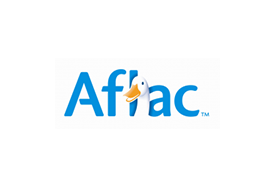How To Support Hispanic Employees During Open Enrollment Season
Aflac shares insights to help employers close the gap with health benefits
Published 10-28-22
Submitted by Aflac Incorporated

By Diana Steinhoff, Senior Vice President, Aflac Dental and Vision
Many organizations put significant time and resources into celebrating and recognizing their Hispanic employees, as well as Hispanic culture and Hispanic Americans’ contributions to society throughout Hispanic Heritage Month, Sept. 15 to Oct. 15. As these celebrations come to a close, it’s important to remember that supporting your Hispanic employees requires being mindful, empathetic and receptive to their needs year-round.
With open enrollment season approaching, one way HR and benefits leaders can do this is by understanding how to talk to Hispanic employees about their health benefits. Tailoring communications, messaging and tactics to what Hispanic employees care about when it comes to their health care is absolutely worth the investment. Hispanics are the most uninsured racial or ethnic group in America;1 18%, or nearly 1 in 5, Hispanic people do not have health insurance, compared to 8.6% of the overall population. My own organization’s research found more than half (65%) of Hispanic Americans could not afford to pay health care costs, compared to 58% of the U.S. general population.
Talking to your Hispanic employees about their health benefits requires understanding of their specific priorities, obligations and pain points. While Hispanic Americans are by no means a monolith, here are some best practices HR and benefits leaders can follow:
- Make it about the family, not the individual. Hispanic culture is strongly family-oriented, and it’s not unusual for Hispanic American households to have multiple generations living under one roof. Talking about the importance of health benefits not only for the individual, but also for their loved ones, is highly effective. Your messaging should include the tangible benefits health insurance provides to employees’ families — for example, the ability to add a spouse, partner and children as dependents — as well as the emotional benefits, such as taking care of themselves so they’re able to take care of their family and modeling healthy habits for their children.
- Put the spotlight on mental health. Up until very recently, mental health was seen as an off-limits topic in the workplace, and talking openly about mental health can still be taboo in Hispanic culture. If the past few years have taught us anything, it’s that we are all human, and we are all affected — positively and negatively — by what is happening around us. Fostering a safe and open dialogue around mental health in the workplace is key. Taking it a step further, HR and benefits leaders should ensure their health care plans include coverage for mental health conditions and create workplace policies and perks that promote mental well-being.
- Be mindful of men. Hispanic men are more likely than women to be uninsured — a trend that also holds true for the general population.1A survey our organization conducted earlier this year found that fewer than half (47%) of U.S. men have an annual checkup, just 37% have had a routine dental exam in the past year, and only 29% have a routine eye exam.2 Understanding these pain points can allow HR and benefits leaders to communicate with male employees more effectively, such as sending reminders that they are due for those regular appointments.
- Provide health benefits information in Spanish. Even if your Hispanic employees are fluent in English, they still may prefer reading about their benefits (and other sensitive information) in Spanish. And this isn’t just the case for the employee, but also for other family members who are impacted by the employee’s health care coverage.
- Give Hispanic employees a seat at the table. Achieving true diversity, equity and inclusion requires having a team who is representative of the group they serve. When tailoring communications about health benefits to Hispanic employees, it’s important to involve those who are part of this culture and have a deep understanding of which messages will resonate.
Hispanic Americans are the second fastest growing racial or ethnic group in the U.S.3 and the least likely to have health insurance.1 By truly understanding what your Hispanic employees want and need from their health benefits, employers can play an important role in closing this gap.
1Axios (2021). Uninsured rates among Latinos rise accessed on Oct. 5, 2022 from https://www.axios.com/2021/09/18/uninsured-rates-latinos-rise.
2 The Men’s Health Study was conducted online in May 2022 by Kantar Profiles on behalf of Aflac and included a nationally representative sample of 1,001 men ages 18-65. Definitions of the age generations used in the survey: Gen Z — 18 to 24 years; millennials — 25 to 40 years; Gen X — 41 to 56 years; baby boomers — 57 to 65 years.
3 Pew Research (2021). Asian Americans are the fastest growing racial or ethnic group in the U.S. Accessed on Oct. 7, 2022 fromhttps://www.pewresearch.org/fact-tank/2021/04/09/asian-americans-are-the-fastest-growing-racial-or-ethnic-group-in-the-u-s
The content herein is provided for general informational purposes and is not provided as tax, legal, health or financial advice for any person or for any specific situation. Employers, employees and other individuals should contact their own advisers about their situations.

Aflac Incorporated
Aflac Incorporated
Aflac is a Fortune 500 company, providing financial protection to more than 50 million people worldwide. When a policyholder or insured gets sick or hurt, Aflac pays cash benefits fairly, promptly and directly to the insured. For more than six decades, Aflac voluntary insurance policies have given policyholders the opportunity to focus on recovery, not financial stress.
More from Aflac Incorporated

